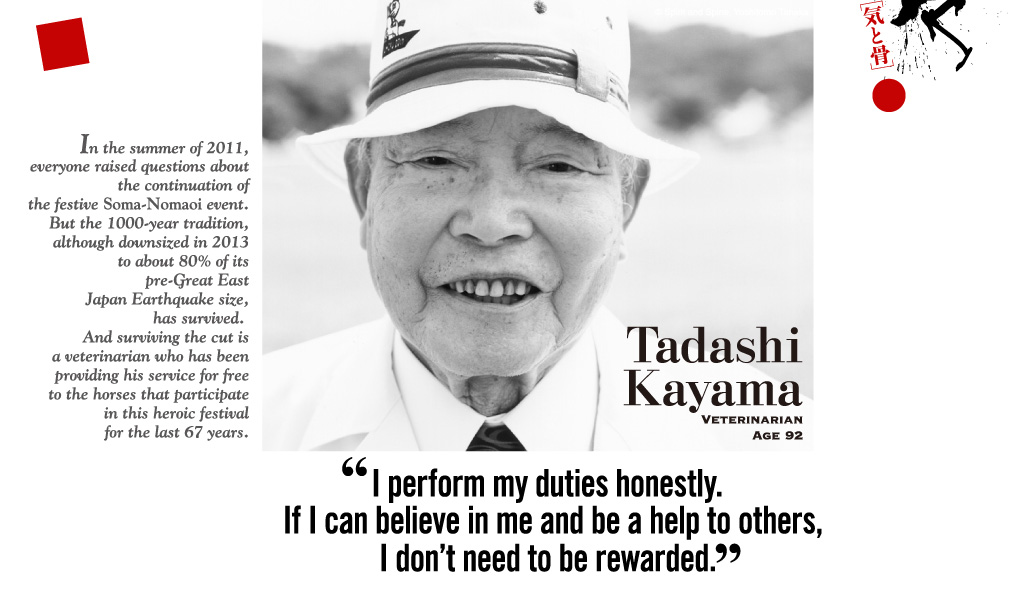The dignified procession of 410 samurai on horseback glistens in the summer sun. Highlights of the Soma-Nomaoi on the second day of the wild horse chase festival include a race by the samurai horsemen in full armor and helmets and a scramble by the horsemen to capture shrine flags.
While 100,000 spectators take in the frenzied events, ambulances are dispatched to the scene frequently to retrieve injured horsemen thrown from horseback. And Dr. Kayama stands by at the horse first-aid station. He works cooperatively with local large-animal veterinarians and veterinarians and nurses from the prefectural Livestock Hygiene Service Center to provide onsite medical care to an endless stream of animals. Relaxed horses remain absolutely still when receiving injections from his experienced and confident hands.
The Great East Japan Earthquake claimed the lives of more than 600 residents of Minamisoma City. Moreover, the nuclear accident has cast a heavy shadow over the city as the accident-related death toll has climbed past 400. These represent lives who will never again participate in the Nomaoi festival. Many participants have lost horses and armor, experienced permanent separation from friends and relatives that death ensures, had to live in temporary shelters, and been forced to abandon farming and the raising of livestock. These are heavy hardships to bear. Kayama, from Fukushima, experienced his own difficulties when forced to take temporary shelter in the aftermath of the quake. His grandchild’s family could not help but leave the town for the sake of their own small child’s health.
Kayama has provided his services to the region for many years, and he shares the passions and worries of festival participants and horse owners alike. The Nomaoi festival is not a participant-only event. It exists for the sake of the region’s pride – the pride of both the young and the elderly residents, and it is these whom the ninety-year-old veterinarian continues to serve as he works to preserve a tradition.







































































































